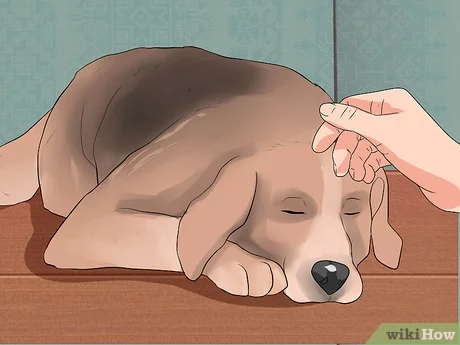Can Dogs Get Bit By Mosquitoes
Are Mosquito Bites Harmful to Dogs? Exploring the Risks and Remedies
As a dog owner or lover, you may have wondered if mosquitoes can bite dogs and if those bites can cause any health problems. The short answer is yes, dogs can get bit by mosquitoes, and while most bites are harmless, some can transmit serious diseases. In this comprehensive article, we will delve into the details of mosquito bites on dogs, from their anatomy and behavior to the risks and remedies for preventing and treating them.
What Are Mosquitoes?
Mosquitoes are small flying insects that belong to the family Culicidae. There are over 3,500 species of mosquitoes worldwide, but only a few dozen are common pests in North America. Mosquitoes have six legs, two wings, and a long proboscis (mouthpart) that they use to pierce the skin of animals and humans to suck blood. Only female mosquitoes feed on blood, which provides them with protein for egg development. Male mosquitoes feed on nectar and plant juices.
Mosquitoes are attracted to warmth, moisture, carbon dioxide, and certain odors that vary among species. They prefer to bite exposed skin areas such as ankles, feet, hands, and necks. Mosquitoes are more active at dawn and dusk but can bite at any time of the day or night. They can fly up to 14 miles per hour and detect hosts from up to 50 meters away.
Can Dogs Get Bit by Mosquitoes?
Yes, dogs can get bit by mosquitoes just like humans. However, dogs have fur that can provide some protection against mosquito bites. Mosquitoes tend to bite thin-skinned or hairless areas such as ears, nose bridges, bellies, and groins in dogs. Some breeds or individual dogs may be more attractive to mosquitoes due to their body chemistry or genetics.
The bites themselves are not harmful to dogs, but they can cause itching, scratching, and inflammation. Dogs may scratch or lick the affected area excessively, which can lead to secondary infections. Moreover, some mosquitoes may carry diseases that can infect dogs and pose serious health risks.
What Are the Risks of Mosquito Bites on Dogs?
Mosquitoes can transmit several diseases to dogs, including heartworm disease, West Nile virus, Eastern equine encephalitis (EEE), Western equine encephalitis (WEE), and La Crosse encephalitis. Let’s examine each of these diseases in more detail:
– Heartworm disease: This is a parasitic infection caused by the roundworm Dirofilaria immitis that lives in the heart and lungs of infected dogs. Mosquitoes pick up immature heartworms from infected animals and inject them into healthy animals when they bite them. The larvae then migrate through the bloodstream to the heart and lungs where they mature into adult worms that can grow up to a foot long. Heartworm disease can cause coughing, fatigue, weight loss, breathing difficulties, and eventually heart failure if left untreated.
– West Nile virus: This is a viral infection that affects both humans and animals, including dogs. Mosquitoes acquire the virus by biting infected birds and transmit it to other hosts. Most infected dogs show no symptoms or only mild flu-like symptoms such as fever, lethargy, and loss of appetite. However, severe cases can lead to neurological problems such as seizures, paralysis, and death.
– Eastern equine encephalitis (EEE): This is a viral infection that targets the central nervous system of horses and humans but can also affect dogs. Mosquitoes acquire the virus from infected birds and transmit it to other animals. EEE can cause fever, depression, circling behavior, blindness, seizures, coma, and death in dogs. Vaccination is available for horses but not for dogs.
– Western equine encephalitis (WEE): This is a viral infection similar to EEE but less severe. It can cause fever, lethargy, weakness, and neurological symptoms in dogs. Vaccination is available for horses but not for dogs.
– La Crosse encephalitis: This is a viral infection that affects mainly children and young adults but can also infect dogs. Mosquitoes acquire the virus from infected rodents and transmit it to other hosts. La Crosse encephalitis can cause fever, headache, vomiting, seizures, and coma in severe cases.
How Can You Prevent Mosquito Bites on Dogs?
Preventing mosquito bites on dogs involves several strategies that target both the mosquitoes themselves and the dog’s environment. Here are some effective methods:
– Use repellents: There are several types of mosquito repellents that are safe for dogs, including sprays, lotions, collars, and spot-on treatments. Look for products that contain DEET (N,N-diethyl-meta-toluamide), pyrethroids such as permethrin or cypermethrin, or natural oils such as citronella, eucalyptus, or lavender. Follow the instructions on the label carefully and avoid applying near the eyes or mouth.
– Eliminate standing water: Mosquitoes breed in stagnant water sources such as ponds, puddles, gutters, and flower pots. Remove any containers that hold water around your yard or house and keep pools clean and chlorinated.
– Use fans: Mosquitoes dislike strong air currents, so using fans indoors or outdoors can help reduce their presence.
– Keep doors and windows closed: Mosquitoes can enter your house through open doors or windows. Use screens to prevent them from entering and keep your dog inside during peak mosquito hours.
– Keep your dog clean: Mosquitoes are attracted to odors and sweat, so bathing your dog regularly and keeping their bedding clean can help reduce the attractiveness of your dog to mosquitoes.
– Consider vaccination: Vaccinating your dog against heartworm disease is the most effective way to prevent this serious condition. Consult with your veterinarian about the appropriate schedule and dosage.
How Can You Treat Mosquito Bites on Dogs?
Treating mosquito bites on dogs depends on the severity of the reaction and the location of the bite. Here are some general guidelines:
– Monitor for symptoms: Watch for signs of itching, redness, swelling, or discharge around the bite area. If your dog scratches or licks excessively, they may develop a hot spot or infection that requires medical attention.
– Apply a cold compress: A cold compress such as a damp towel or ice pack can help reduce swelling and itching. Do not apply ice directly to the skin and do not leave the compress on for more than 10 minutes at a time.
– Use topical treatments: There are several over-the-counter creams, ointments, and sprays that can relieve itching and inflammation caused by mosquito bites. Look for products that contain hydrocortisone, calamine, aloe vera, or tea tree oil. Do not use human products on dogs unless approved by your veterinarian.
– Give antihistamines: If your dog has an allergic reaction to mosquito bites, they may experience hives, breathing difficulties, or anaphylaxis. In such cases, you should seek emergency veterinary care immediately. For mild allergic reactions, you can give your dog antihistamines such as diphenhydramine (Benadryl) under veterinary guidance.
In conclusion, while dogs can get bit by mosquitoes without much harm in most cases, there are risks associated with these bites that should not be ignored. By taking preventive measures such as using repellents, eliminating standing water, and keeping your dog clean, you can reduce the likelihood of mosquito bites and their consequences. If your dog does get bitten, monitor the symptoms, apply first aid as necessary, and seek veterinary care if needed. Remember that prevention is always better than cure when it comes to protecting your furry friend from mosquito-borne diseases.



